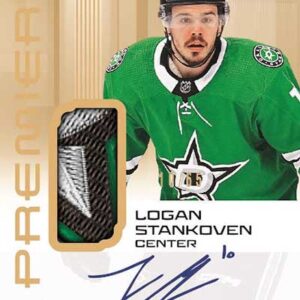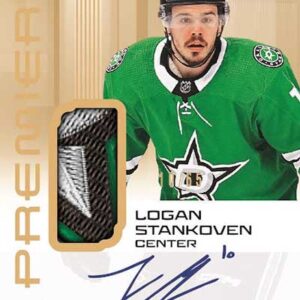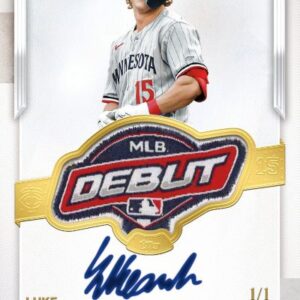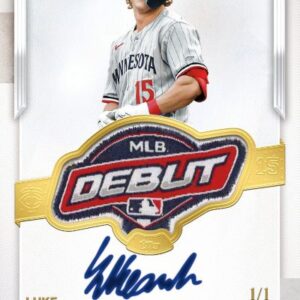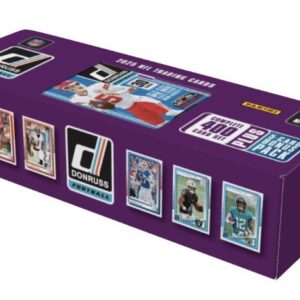In a scandal that jolted the sports memorabilia world and left collectors eyeing their prized possessions with suspicion, Brett Lemieux, a prominent autograph dealer from Indiana, is at the center of what authorities describe as a counterfeit juggernaut. It all unfolded dramatically, with a backdrop fit for Hollywood: a police raid, a shocking confession, and a network that allegedly churned out millions of fraudulent sports collectibles, radically altering the market landscape.
The normally sedate town of Westfield was thrust into the spotlight when local authorities executed a search warrant at the residence of Brett Lemieux. The 45-year-old, known to many in the memorabilia community, was found dead of a self-inflicted gunshot wound, a tragic end underscoring the gravity of the circumstances. Speculations and revelations have since unfurled about Lemieux’s alleged involvement in a sprawling fake sports memorabilia racket that might have cast long shadows over the market for years to come.
Much of the drama began with a digital confession posted in a popular Facebook group dubbed “Autographs 101.” The words, attributed to Lemieux, described a fraudulent enterprise reportedly responsible for pushing north of four million counterfeit sports items into circulation, amassing sales claims as audacious as $350 million. The post reverberated through the autograph-collecting community, inciting existential dread about the authenticity of collectible treasures.
Operating under the guise of a business known as Mister Mancave, Lemieux touted having “the largest framed jersey inventory on the web.” However, his operation’s legitimacy quickly unravelled as adversaries noted the vague Columbus, Ohio address, which, upon investigation, revealed no brick-and-mortar presence. Instead, Mister Mancave had a murky financial footprint with incorporation records in Indiana spanning from 2018 to 2023, a duration shadowed by suspicion.
A part of his alleged modus operandi was the forging of holographic stickers, a scheme brazenly targeting trusted authentication companies such as Panini, Fanatics, and James Spence Authentics, among others. In the wake of Kobe Bryant’s tragic passing in 2020, Lemieux claimed to have released as many as 80,000 faux Bryant items into the market, each concocted with counterfeit yet seemingly genuine holograms, an act both devious and predatory.
Lemieux’s fictitious collector offerings weren’t limited to basketball icons. Baseball fans, too, fell into the trap, as exemplified by an Aaron Judge-signed baseball offered on his site for $399, a suspicious discount when directly compared to Fanatics’ official price of $699. The undercut pricing was an ingenious yet sinister tactic that helped his facade of authenticity persist undetected, at least for a time.
The broader industry recoiled at the revelations, scrambling to fortify the now-shaky walls of trust. Fanatics, a heavyweight in the sports memorabilia scene, insists on having revamped its hologram technology two years prior to clamp down on counterfeiting, while enlisting crime-fighting expertise from former FBI specialists. Such proactive adjustments underscore the increased awareness and essential evolution needed to protect collectors from fraudulent traps.
Despite skepticism over Lemieux’s bombshell figures—some deem the $350 million in sales hyperbolic—there is no questioning the thunderous impact felt by the community. Steve Grad, an esteemed expert in autograph authentication, highlights the sophisticated forgery techniques like autopen technology that modern counterfeiters deploy, turning authentication into an increasingly difficult, and sometimes impossible, art form.
Insiders reveal that alert signals had flickered before. One dealer recalled Lemieux flaunting autographs from athletes who hadn’t been available for signings in years, an early sign that escaped broader examination until now. Names mentioned in Lemieux’s so-called manifesto, such as Indiana’s Dominique Ball and Wisconsin’s Nickolas Litscher, quickly distanced themselves and denied any wrongdoing, with Litscher considering legal recourse to clear his own name from the tainted list.
Authorities suspect Lemieux’s operation spanned multiple nebulous business identities, leaving a labyrinth of pseudonyms including Ultimate Sports, Athletes One, Signature Dog, and All-American Authentics, through which the counterfeit goods were purportedly funneled.
As the dust settles, law enforcement and the memorabilia community are left wrestling with the repercussions of Lemieux’s alleged misdeeds. Collectors, some plagued with doubt, are urged to re-evaluate their memorabilia collections, an unwelcome, yet necessary pivot to safeguard passion and investment from the specter of fraud. The scandal is an uncomfortable reminder of why vigilance must remain paramount as the market recalibrates, striving to ensure such a deception does not commit itself to repeat.
